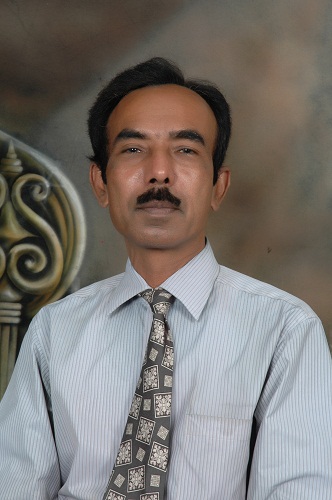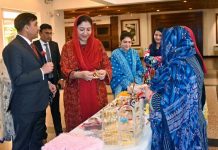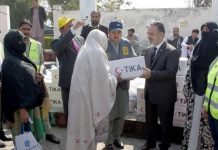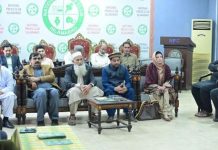Sajjad Shaukat
On the one side, every year, 26th of January, is being celebrated by India as the Republic Day, while, on the other side, the day is being observed by the Kashmiris on both side of the Line of Control (LoC) and all over the world, including their Pakistani brethren as the Black Day in protest against Indian illegal occupation of Kashmir.
Although apparently, India claims to be the largest democracy, acting upon the principles of liberalism and secularism, yet in practice, all political, economic and social fields of the country are divided on the religious and caste lines. Theoretically, Indian Constitution safeguards the rights of minorities, but in practice, ideology of Hindutva (Hindu Nationalism) prevails.
And showing complete disregard to the Constitution, the leader of the ruling BJP party-the Indian Prime Minister Narendra Modi has accelerated implementing the Hindutva ideology. Now, Indian internal policies are totalitarian. Various developments like unprecedented rise of Hindu extremism, persecution of religious minorities such as Sikhs, Christians and particularly Muslims, including even of lower cast-Hindus—the anti-Muslim Indian Citizenship Amendment Act 2019, the National Register of Citizens show that the Hindu fanatic groups have been promoting religious and ethnic chauvinism in India.
Despite criticism of the rights groups, foreign leaders, the UN and moderate Hindus in wake of violent protests which killed hundreds of persons—mostly Muslims by the police and prejudiced Hindus, Modi’s regime has not withdrawn the CAA/NRC.
While, Indian Constitution was torn into pieces when on August 5, 2019, Indian Parliament revoked articles 35A and 370 of the Constitution, which gave a special status to the disputed territory of the Indian Illegally Occupied Jammu and Kashmir (IIOJK). The act split the IIOJK into two territories to be ruled directly from center.
Thus, Indian fanatic Prime Minister Modi’s government led by extremist party BJP unilaterally annexed the IIOJK to turn Muslim majority into minority.
Now, more than 17 months have been passed. But, Indian strict military lockdown in the IIOJK continues.
Despite the deployment of more than 900,000 military troops in the IIOJK, who have martyred thousands of the Kashmiris, including women and children through brutal tactics-fake encounters—closure of mosques, shortage of foods, medicines for the patients and coronavirus-affected persons, the use of pellet guns and phosphorus bombs, Kashmiris continues war of liberation.
In order to conceal India’s state terrorism, Kashmir has been cut off from rest of the world.
Besides, New Delhi also amended a law in October, last year regarding the Indian Occupied Kashmir (IOK), allowing Indian citizens to buy land there. Indian prejudiced rulers’ various other measures such as issuance of domicile certificates to more than 500000 non-Kashmiris show Indian fascist campaign.
It is notable that during the partition of the Sub-continent, the people of the state of Jammu and Kashmir (J&K) which comprised Muslim majority decided to join Pakistan according to the British formula. But, Dogra Raja, Sir Hari Singh, a Hindu who was ruling over the J&K in collusion with the Indian Prime Minister Jawaharlal Nehru and Governor General Lord Mountbatten joined India.
The Radcliffe Boundary Award gave the Gurdaspur District—a majority Muslim area to India to provide a land route to the Indian armed forces to move into the J&K.
Indian forces invaded Srinagar on October, 27 1947 and forcibly occupied the J&K in utter violation of the partition plan and against the wishes of the Kashmiri people.
When Pakistan responded militarily, on December 31, 1947, India made an appeal to the UN Security Council to intervene and a ceasefire ultimately came into effect on January 01, 1949, following UN resolutions calling for a plebiscite in Kashmir.
The Security Council adopted resolution of April 21, 1948, which promised a plebiscite under UN auspices to enable the people of Jammu and Kashmir to determine whether they wish to join Pakistan or India. On February 5, 1964, India backed out of its commitment of holding plebiscite. Instead, Indian Parliament declared Kashmir-an integral part of the Indian union.
Since 1989, Kashmiris have already been enduring various forms of state terrorism; no Indian soldier has ever been taken to task. Hence, since the military clampdown started, Indian forces have intensified the employment of cruel tactics. Almost, 100,000 Kashmiris have died in the past 30 years.
UN human rights experts on August 4, 2020 called on India and the international community to take urgent action to address the “alarming” human rights situation in Jammu and Kashmir—“to investigate all cases of human rights violations, including extrajudicial killings, enforced disappearances, torture and arbitrary detentions.”
Amnesty International said on September 29, last year that it is “stopping its work in India because the government has frozen its bank accounts on September 10 [2020] for highlighting rights violations in Jammu and Kashmir…the government had sought to punish it for that”.
In the recent past, the UNSC in its meetings has thrice reiterated that the Kashmir issue requires to be settled in accordance with the principles of the UN charter and the related Security Council resolutions, as the world has refused to believe in the Indian story that its actions are its internal matter.
Moreover, Indian extremist rulers are escalating tensions with Pakistan to divert attention from the drastic situation of the IOK and Indian internal issues. For the purpose, Indian forces have also accelerated shelling inside Pakistani side of Kashmir by violating the ceasefire agreement in relation to the LoC.
In a recent statement, ISPR said that on December 18, 2020, Indian troops deployed along Line of Control in Charikot sector specifically targeted a United Nations vehicle carrying two officers of the United Nations Military Observer Group in India and Pakistan—the vehicle was damaged by the firing, but the officers remained unhurt.
Nonetheless, by exposing the myth of Indian claim of the largest democracy-26th of January which is celebrated as the Indian Republic Day is being observed by the Kashmiris and Pakistanis across the globe as the Black Day to express solidarity with the freedom fighters of Kashmir.
Sajjad Shaukat writes on international affairs and is author of the book: US vs Islamic Militants, Invisible Balance of Power: Dangerous Shift in International Relations
Email: [email protected]

















